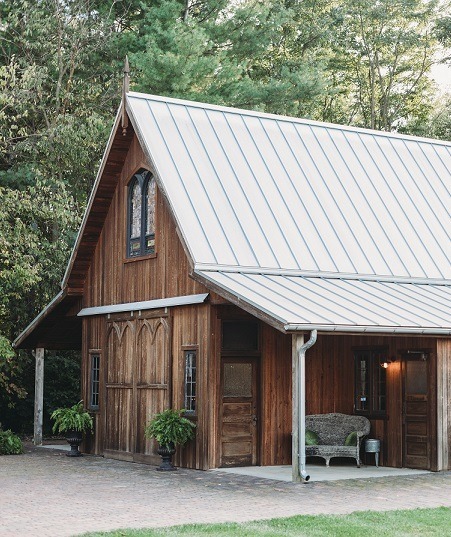
Looking at homes near undeveloped land? Found some real estate with a great view, and perfect privacy? Maybe too perfect, you think. Because it looks like a space developers would love, too. What if they build houses or apartments in that open space? What if you wake up in your newly bought home to the sound of road construction?
Or maybe there are other homes nearby, but everyone seems to be mellow, and everything’s in place. The calm is just what you’ve been looking for. Still, your mind wanders to a possible future in which everything changes. What if someone with noisy or noxious hobbies moved in next to you, spoiling the whole mood?
The reality of real estate is that the surroundings can change. This could impact your property value (for better or worse). It could unsettle the expectations you had when you bought the home. Here’s what you should know before deciding to sign the purchase contract.
Promises, Promises? Usually, Sellers Only Speak for Themselves.
Home sellers disclose material defects to potential buyers. But rarely will a seller make promises to a buyer about what will be done (or not done) with the home’s surrounding parcels of land.
If a buyer wants to know what could be planned for the area around the home, there are several steps to take:
- Check the most recent survey or call the tax assessor’s office to learn who actually owns the land at issue. Unless it is government land, there’s a property owner named in the county records. Private owners and businesses hold the rights to most U.S. real estate. Governments — federal, state, or local — own everything else.
- Investigate the zoning of the land at issue. Check with the local planning department. Is it preserved, or available to developers?
- Ask your agent if the purchase agreement can be contingent on the seller’s disclosure of any known or expected area land use that could interfere with the buyer’s quiet enjoyment of the home.
And on a less official note… Ask around. Meet the locals. Go into the nearest businesses and speak with them about the neighborhood’s past, present, and future as they envision it. It doesn’t hurt to converse with people who also have reason to keep an ear to the ground.
Even if you’ve found out all you need to know for now, land uses might change later. More on land use changes and how to address them in a bit.
When a Neighbor Becomes a Nuisance, Check the Rules Before Considering Court.

Many things can diminish an owner’s peaceful enjoyment of a home. Someone’s motorbike; visible heaps of junk or waste; commercial vehicles; bright lights at night; fires or fireworks or even meandering chickens or honeybees. Private nuisance law might help if, from the perspective of an ordinary person, your enjoyment and use of your real estate is unreasonably and substantially impacted.
But is it all worth feuding in court over? If so, can you win, and have the culprit cease the offending activity?
It all depends. Courts review the facts presented to them.
Before even thinking about court, see if you can resolve the matter through a civil discussion with your neighbor. Be sure you know if local rules simply forbid the offending action outright. Call the city and ask about zoning and land use rules that do or do not bar the activity at issue.
If local ordinances are on your side, the activity can be stopped, even if the other party has ignored your pleas. File a complaint, stressing why the activity offends the rules; how serious the disturbance is; how it could impact property values; or any further pertinent arguments. Then let the agency send a code enforcement officer out to handle the situation.
If enforcement is not possible due to a vague ordinance or for other reasons, going to court could be the only path. If so, how serious is the disturbance? Is the activity essential to the person doing it? How hard would it be for the person to stop doing it? A court would weigh what’s at stake for both parties.
Safety tip: If the problem is a fire hazard and could start a fire that spreads out of control, then the hazards related to wildfire may justify stopping the practice. For safety’s sake, promptly alert local fire officials to the issue.
Rezoning Happens. (That Doesn’t Mean Anything Goes!)
The U.S. population is growing. We live in a time of widespread housing shortages. Policymakers from the White House to local zoning boards are under pressure to house people. One of the ways they can? Through a rezoning practice dubbed upzoning.
The federal government is now incentivizing states, counties, and townships to support upzoning. It is also throwing its weight behind new lending rules to help people build extra housing units on their properties. This trend can create more density in a way that empowers homeowners, not corporate rental groups. The federal goal? A million accessory housing units in the next five years. As the supply rises, more housing demand can be met.
☛ With so many hopeful buyers and so few affordable listings, rule changes to let homeowners build accessory dwelling units (ADUs) on single-unit properties is a hot trend. An ADU can be anything from a separate cottage to a self-contained basement apartment. Learn more about the rise of ADUs in residential areas at Deeds.com.
While society’s need to provide housing for people is urgent, and while homeowners should be able to create units according to the applicable laws, your neighbor doesn’t have the right to just build anything. Real estate owners have to follow the rules.
Where ADUs are allowed, they must adhere to requirements on permitting, structure type, design, maximum number of inhabitants, pet limits, location in relation to the edge of the property, etc. And the real estate owner might be required to live on the property rather than simply treat it as a rental enterprise.
Not All “Upzoning” Is Created Equal. What If a Corporation Is Pressing for High-Density Rezoning?
A small cottage going up beside you is one thing. But you might feel like you’re losing your peace and quiet entirely if a major construction project is planned for the land next door. Is the company getting the land rezoned? Is it requesting a variance to essentially rezone your surroundings?
Rezoning has to meet a demonstrated need. And it has to go through procedural channels, including a hearing where local opposition can be heard and considered.
It’s likely that the new development has to meet strict standards, to ensure it will:
- Adhere to the relevant state and federal laws.
- Fit in with already existing land uses.
- Uphold local property values.
- Not overwhelm public services.
- Not exceed the area’s capacity to accommodate traffic and parking.
☛ Note: There might be environmental reasons a project can be stopped. For example, do you believe there are endangered species on the undeveloped land? An environmental nonprofit or local university might have the resources to assist you in making the case.
If you decide to push back against pending construction plans, study the current and proposed zoning ordinances, and follow the procedures for submitting your response. Watch out for deadlines.
You are usually more effective if you’re in a group of like-minded people, and all of them show up at the public hearings. Petitions and op-eds in the local papers can bring positive attention to your perspective. Some tactics are more impactful than others. Concerned residents might consult with a local law firm experienced in zoning cases.
The Takeaway for Buyers: Change Is Inevitable.
It’s easy to get caught up in the moment when you find the right home. But be mindful of the way places change in a few years. Other real estate buyers might have their own ideas about how the area can be put to use.
And yes, a home buyer does have the right to the enjoyment and use of that property. If another party impinges on your rights inappropriately, you may be able to take action. For case-specific advice, consult with a local real land use lawyer.
Supporting References
Carol Hardy Vincent et. al, Federal Land Ownership: Overview and Data, Congressional Research Service (updated Feb. 21, 2020).
Deeds.com: The Biden Administration’s New Housing Supply Action Plan (Jun. 17, 2022).
American Bar Association, Residential Real Estate FAQs: Common Issues With Residential Real Estate – What Are Some Key Issues for Me to Consider When Reviewing a Contract to Purchase a Home?
Danny Evatt for RealFX Cedar Park (Austin, TX area): RealFX Real Estate Tips – Buying a Home Next To Vacant Land Posted (Dec. 1, 2012).
And as linked.
Photo credits: Tetyana Kovyrena and Steven Van Elk, via Pexels.
